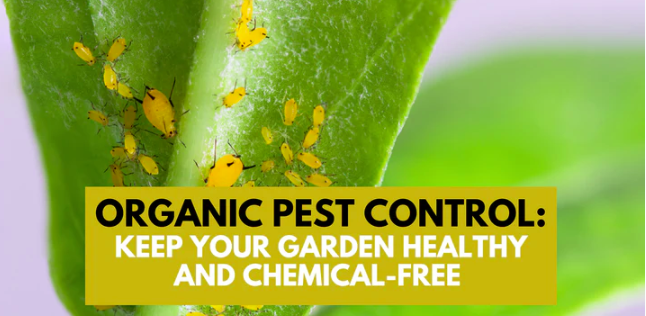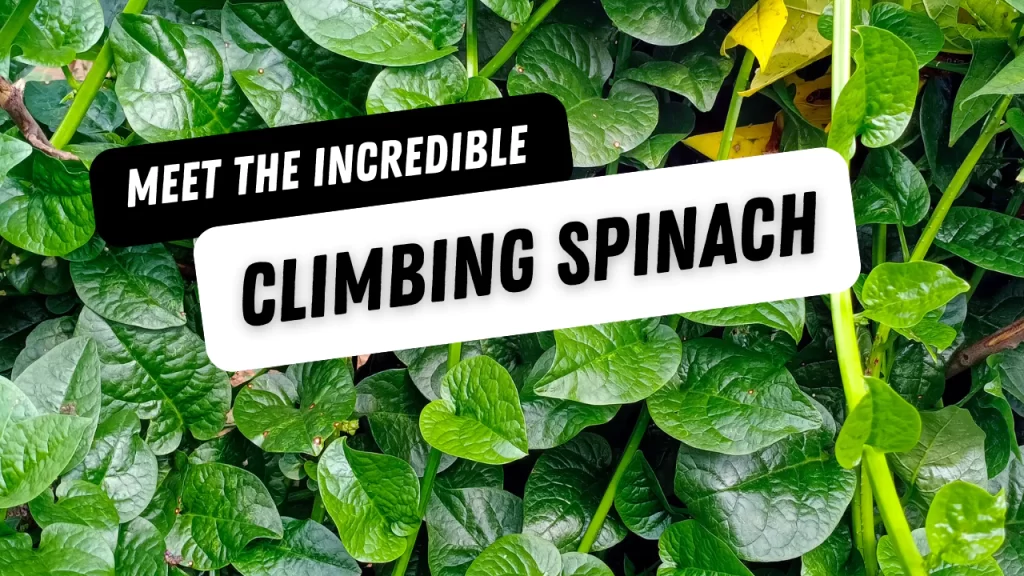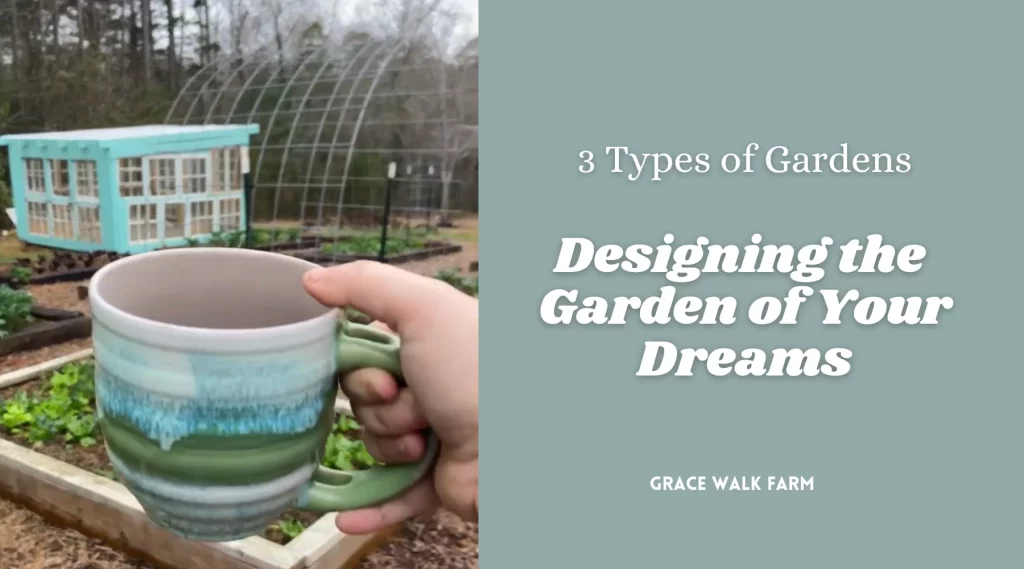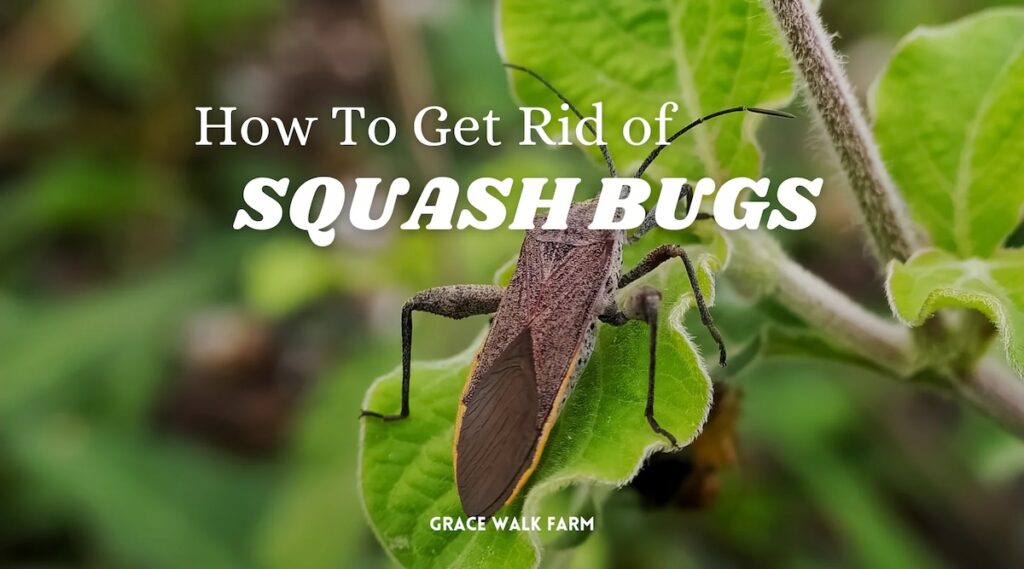If you have a garden, chances are you’ve had to deal with some unwanted guests. No, we’re not talking about your nosy neighbors who always peek over your fence to check out your crops (although, they can be quite a nuisance too). We’re talking about the pesky insects, creepy crawlies, and other critters that can wreak havoc on your plants and turn your once-thriving garden into a barren wasteland.
Now, you might be tempted to go Rambo on these pests, dousing them with chemicals and pesticides like you’re in a sci-fi movie. But hold your horses, cowboy (or cowgirl). Using chemical pesticides not only harms the environment, but it can also harm your health and the health of beneficial insects that play a crucial role in pollination and maintaining a balanced ecosystem.
So, what’s the solution, you ask? Organic pest control, of course! In this article, we’ll show you how to keep your garden healthy and chemical-free by identifying common garden pests, the best prevention, natural pest control methods, and even making some DIY organic pest control recipes. Let’s get started and show those pesky pests who’s boss!
Welcome to Grace Walk Farm, our family homestead in western NC. We share the highs and lows of our homestead journey, in hopes that it will encourage you to grow your own food too. Click here to grab our Beginner Garden Guide for free! Join our 600K strong Instagram community of homesteaders here. Thanks for stopping by!

The Most Common Destructive Garden Bugs
Before we dive into the nitty-gritty of organic pest control, let’s take a moment to appreciate the wonder that is your garden. Think about it – you’ve created a little slice of paradise in your backyard. You’ve carefully selected the perfect plants, tended to them with love and care, and watched them grow into beautiful, thriving specimens. It’s like a mini oasis, a retreat from the chaos of the world where you can sit back, relax, and enjoy the fruits of your labor.
But as with all good things, there are always some bumps in the road. Those bumps come in the form of pests – little critters who are just trying to survive, but unfortunately, they’re doing it by munching on your precious plants.
The most common garden pests include aphids, slugs, snails, spider mites, and caterpillars, to name a few. These guys might be small, but they can cause big damage to your garden if left unchecked. But fear not, dear gardener – with a little bit of knowledge and some clever tactics, you can keep your garden thriving and free from pests, all without harming the environment or risking your health.
To see photos of the most common garden pests to help you identify what you’re dealing with, check out Lesson 13 in Grow Food: Backyard Gardening 101.
Dangers of Chemical Pesticides
Chemical pesticides can pose a number of dangers to both human health and the environment. Here are a few examples:
- Health risks to humans: Chemical pesticides can cause a range of health problems in humans, including skin and eye irritation, respiratory issues, and even cancer. People who work with pesticides, such as farmers or gardeners, are at particular risk of exposure.
- Harm to beneficial insects: Chemical pesticides can harm beneficial insects like bees and ladybugs, which play an important role in pollination and natural pest control.
- Toxic runoff: Chemical pesticides can be carried by rainwater or irrigation into nearby waterways, contaminating streams, rivers, and lakes. This can harm aquatic life and make the water unsafe for human use.
- Soil degradation: Overuse of chemical pesticides can lead to soil degradation, as they can kill off beneficial soil microorganisms that help plants to grow.
- Resistant pests: Over time, pests can become resistant to chemical pesticides, making them less effective at controlling pest populations. This can lead to the need for stronger and more toxic chemicals, creating a dangerous cycle of dependence on these substances.
These are just a few examples of the dangers of chemical pesticides. By using organic pest control methods instead, you can help protect yourself, your garden, and the environment from these risks.
The Impact of Pesticides
According to the United States Environmental Protection Agency (EPA), over 1 billion pounds of pesticides are used in the United States each year.
The World Health Organization estimates that 3 million cases of pesticide poisoning occur each year, resulting in 220,000 deaths worldwide.
A study published in the journal Environmental Health Perspectives found that people who reported using professional pest control services in their homes had a 60% higher risk of developing leukemia than those who did not use these services.
The United Nations estimates that up to 40% of global food crops are lost each year due to pests and diseases.
A study published in the journal Science found that bees exposed to neonicotinoid pesticides, a common class of chemical pesticides, are less able to forage for food, leading to decreased colony growth and survival.
These statistics highlight the significant impact that chemical pesticides can have on human health, the environment, and food production. By choosing organic pest control methods instead, we can help reduce our reliance on these harmful chemicals and create a safer, healthier world for ourselves and future generations.

Preventing Pest Damage Without Chemicals
Now, before we jump into the organic pest control methods, it’s important to recognize that prevention is key. As they say, an ounce of prevention is worth a pound of cure. That’s especially true in gardening. By taking some simple steps to prevent pests from ever getting a foothold in your garden, you’ll save yourself a lot of time, effort, and frustration down the line. Some of the best prevention techniques include crop rotation, companion planting, and proper watering and fertilization.
Crop rotation involves switching up the types of plants you grow in a particular area each year. This helps prevent pests from establishing themselves in the soil and reduces the likelihood of plant diseases.
Companion planting is the practice of planting certain plants together to deter pests or attract beneficial insects. For example, planting marigolds alongside your vegetables can help repel aphids and hornworms.
Proper watering and fertilization also play a key role in preventing pest infestations. Overwatering or over-fertilizing can weaken plants and make them more susceptible to pests and diseases.
By using these prevention techniques, you can reduce the likelihood of pests setting up shop in your garden in the first place. However, even the best prevention techniques won’t completely eliminate the risk of pest problems. That’s where organic pest control methods come in. In the next section, we’ll take a closer look at some natural pest control methods you can use to keep your garden thriving and chemical-free.

Natural Treatments for Garden Pests
When it comes to organic pest control, there are plenty of natural methods you can use to keep pests at bay. One of the most effective methods is simply handpicking pests off your plants. It may not be the most glamorous method, but it’s definitely effective! Check your plants regularly for signs of pests and remove any you find by hand. This method is particularly effective for larger pests like caterpillars and slugs.
Another natural pest control method is using beneficial insects to your advantage. Ladybugs, lacewings, and praying mantises are all natural predators that can help keep garden pests under control. You can attract these beneficial insects to your garden by planting lots of flowers.
You can also make your own organic pest control sprays using natural ingredients like garlic, neem oil, and hot peppers. These sprays are safe to use and won’t harm the environment or beneficial insects. We’ll go into more detail on how to make your own DIY organic pest control sprays in a later section of this article.
Finally, it’s important to remember that sometimes a little damage is okay. Not all pests are harmful to your garden, and some amount of damage is just part of the natural cycle. If you can tolerate a small amount of pest damage, it’s best to let nature take its course and avoid using pesticides altogether.
By using natural pest control methods, you can keep your garden healthy and thriving without resorting to harmful chemicals. Not only is this better for the environment and beneficial insects, but it also ensures that the produce you grow is safe and chemical-free. So, grab your gardening gloves and let’s get started on keeping those pesky pests at bay!
Organic Pest Control Options
Neem oil: Derived from the neem tree, neem oil is a natural insecticide that can be used to control a wide variety of pests, including aphids, whiteflies, and spider mites.
Insecticidal soap: Made from a mixture of soap and water, insecticidal soap can be used to control soft-bodied pests, such as aphids and mealybugs.
Diatomaceous earth: Made from fossilized algae, diatomaceous earth can be used to control a wide variety of pests, including ants, beetles, and bed bugs.
Garlic spray: Made from garlic and water, garlic spray can be used to repel pests such as aphids, Japanese beetles, and whiteflies.
Hot pepper spray: Made from hot peppers and water, hot pepper spray can be used to repel pests such as aphids, whiteflies, and spider mites.
Beneficial nematodes: These are tiny, beneficial worms that can be introduced to the soil to control pests such as grubs and cutworms.
Bacillus thuringiensis (BT): BT is a naturally-occurring soil-borne bacteria that is toxic to certain insects and can be used as a spray to control pests such as caterpillars.

DIY Organic Pest Control Spray
Ingredients:
- 1 tablespoon of liquid soap (use a pure, natural soap like Castile soap)
- 1 quart of water
- Optional: a few drops each of peppermint and rosemary essential oils.
Instructions:
- Mix the liquid soap and water in a spray bottle.
- Add a few drops of essential oil if desired.
- Shake the mixture well to combine.
- Spray the mixture directly onto the pests on your plants, making sure to coat them thoroughly.
- Reapply the spray as needed, particularly after rain or watering.
Insecticidal soap works by suffocating pests like aphids, spider mites, and whiteflies. It’s safe to use on most plants and won’t harm beneficial insects like ladybugs or lacewings. Just be sure to test the spray on a small area of your plants before applying it to the entire plant to ensure that it won’t cause any damage.
Remember, organic pest control methods require a bit more patience and effort than chemical pesticides, but the end result is a healthier, chemical-free garden that’s better for you and the environment.
Also check out these blogs:





